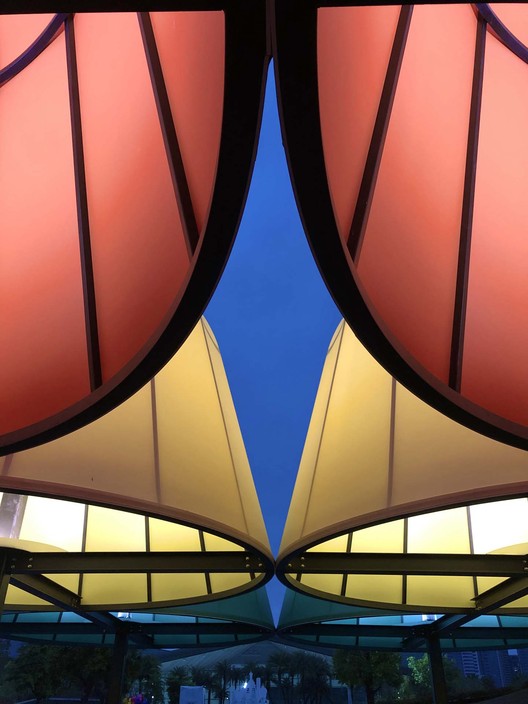
-
Architects: Daxing Jizi Design
- Area: 270 m²
- Year: 2021
-
Photographs:Chao Zhang, Dalian Zhang

Text description provided by the architects. With the curatorial theme of “Searching the Glow of Future”, Glow Shenzhen 2021 seeks to integrate light art into urban life and release the vitality of urban public space. Daxing Jizi is invited to exhibit their architectural installation, “Dream Glow Pavilion”, at the Shenzhen Universiade Center, Glow Shenzhen’s Longgang section. The Universiade Center is about 990 meters wide from east to west and 1050 meters long from north to south, covering an area of 520,000 sqm, serving as a major place for fitness and leisure for the surrounding residents. During our research, we found that there are few small-scale structures for the public to relax, so how incorporating a small enjoyable space into the massive center became our initial intention of the design.
















































